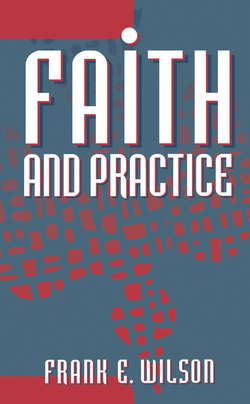Читать книгу Faith and Practice - Frank E. Wilson - Страница 15
На сайте Литреса книга снята с продажи.
THE APOCRYPHA
ОглавлениеThe word “Apocrypha” means “hidden” and was originally applied to a large number of writings at the beginning of the Christian era which presented religious mysteries under a mass of symbolical expressions. As applied to those books which we now call the books of the Apocrypha, the term (according to St. Augustine) refers to their hidden origin.
Nobody knows exactly who wrote them, but they had a very wide circulation among the Jews at the time of our Lord’s ministry. As explained above, the Hebrew canon of Holy Scripture had not at that time been definitely fixed, and there was much difference of opinion in the rabbinical schools as to whether any or all of these books should be included in the Sacred Writings. When the Council of Jamnia (A.D. 90) settled the question of the contents of the Hebrew Bible, these fourteen books were all excluded. Meantime, however, the Septuagint (the Greek translation of the Old Testament writings) was being produced by the liberal-minded Jews of Alexandria, and the Septuagint included the Apocryphal books.
In the first Christian centuries, various collections of the Sacred Writings were in use, some containing certain of the Apocryphal books and some containing others. Straight down to the Reformation the Apocrypha was included in the official Christian Bible through all of Christendom.
The reformers of the sixteenth century pursued a different course. Finding their exclusive authority in the Holy Scriptures, they carefully examined the question as to the relative standing of these two sets of writings. They recognized a distinction but refused to abolish the Apocrypha which had been an integral part of the Christian Bible for so many centuries. In the first complete edition of Luther’s Bible (A.D. 1534), the Apocrypha was included as a supplement to the Old Testament with the notation that they were books “which are not held equal to the sacred Scriptures, and nevertheless are useful and good to read.” Neither were they discarded in the English Bible but were retained as a separate section between the Testaments, and in the Sixth Article of Religion it was specified that the Church reads them “for example of life and instruction of manners; but yet doth it not apply them to establish any doctrine.”
Protestant sentiment, however, has run more and more to a disparagement of the Apocrypha. About a hundred years ago (in 1827), the British and Foreign Bible Society, over vigorous protest, decided to omit it entirely from their printings of the Bible. Since that time, most English copies of the Authorized or Revised Versions have circulated without the Apocrypha until many readers of the Bible today scarcely know that the books exist. This seems very unfortunate. For fifteen hundred years the Christian world cherished the Apocrypha in its Bibles. It is a fair question to ask what right any person or group of persons has to drop out fourteen books from the Bible which the Christian world used for fifteen centuries and which most of the Christian world still uses today?
